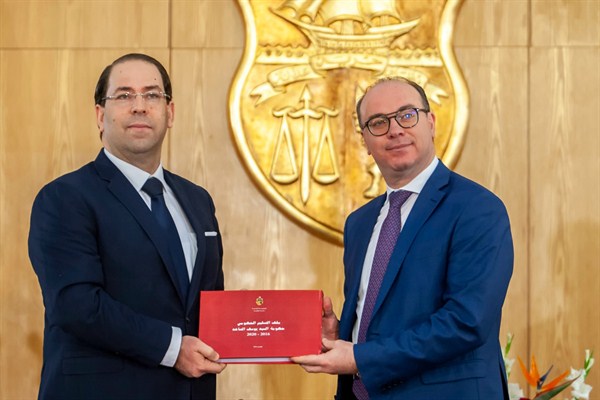TUNIS, Tunisia—Tunisia’s parliament voted late last month to approve a new government under Prime Minister Elyes Fakhfakh, ending months of political limbo. While a new president and a fresh crop of lawmakers were sworn in after elections last fall, the ballot produced a highly divided parliament that had been unable to agree on a government until recently.
In Tunis when the new government was announced, many of the Tunisians I spoke with were breathing a sigh of relief that the country narrowly avoided fresh elections, which would have been likely had Fakhfkakh failed to win support. However, others, from young civil society activists to seasoned political analysts, are skeptical that this government will be able to accomplish the difficult tasks needed to keep Tunisia’s democratic transition on track.
One reason for concern is that this is the country’s 11th government since the 2011 democratic transition. This means that in post-revolutionary Tunisia, governments have an average lifespan of only 10 months. With such a high rate of turnover, ministers barely have time to get themselves and their staffs up to speed on their portfolios before being rushed out the door. And while some of the ministries—particularly those under the purview of the presidency, like defense, interior and foreign affairs—have managed to outlast Cabinet reshuffles, the frequent turnover has contributed to a steady loss of trust among Tunisians in their political institutions.

